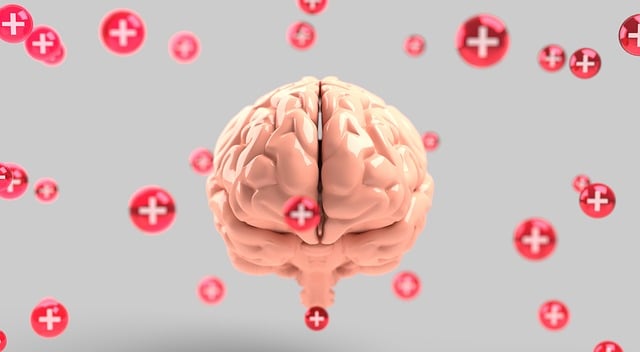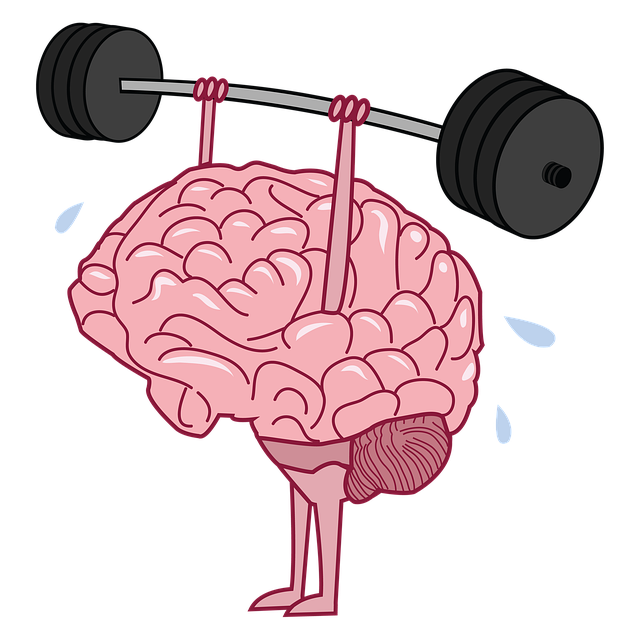Mental Health Advocacy, led by initiatives like Castle Rock Chronic Illness Therapy, fosters supportive communities through awareness, education, and support. They offer journaling exercises, therapeutic services, workshops, and groups to promote self-reflection, resilience, and emotional healing. By challenging stigma, advocating for resources, and empowering individuals, these programs ensure mental well-being becomes a priority. Collaboration among professionals, community leaders, and individuals with lived experiences strengthens advocacy efforts, while evaluation ensures program effectiveness and adaptability.
Mental health advocacy initiatives are pivotal in fostering societal change and improving access to support. This article explores the power of community engagement, using Castle Rock Chronic Illness Therapy as a compelling case study, demonstrating how local programs can significantly impact mental well-being. We delve into strategies for effective advocacy, emphasizing collaboration and alliance building to amplify efforts. Additionally, we discuss measurement techniques to evaluate success in mental health advocacy programs, providing insights for both practitioners and enthusiasts alike.
- Understanding Mental Health Advocacy: A Foundation for Change
- Castle Rock Chronic Illness Therapy: A Case Study in Community Engagement
- Strategies for Effective Mental Health Advocacy Initiatives
- Building Alliances: Collaboration for Amplified Impact
- Measuring Success: Evaluating the Effectiveness of Mental Health Advocacy Programs
Understanding Mental Health Advocacy: A Foundation for Change

Mental Health Advocacy is a powerful tool for driving positive change and creating a more supportive environment for individuals dealing with mental health challenges. It involves raising awareness, challenging stigma, and advocating for better access to resources and services. By understanding the intricate nature of mental illness and its impact on daily life, advocates can provide crucial support and guidance. This includes offering Mental Wellness Journaling Exercise as a means to promote self-reflection and emotional healing processes, boosting individuals’ confidence in managing their mental health.
At the core of advocacy is the belief that everyone deserves access to quality care, regardless of their circumstances. Initiatives like those provided by Castle Rock Chronic Illness Therapy play a vital role in this journey. Through education, outreach programs, and community engagement, advocates work towards destigmatizing mental health issues and fostering an environment where individuals feel empowered to seek help. This involves not only providing Confidence Boosting strategies but also ensuring that emotional healing becomes a priority, as it is a fundamental aspect of overall well-being.
Castle Rock Chronic Illness Therapy: A Case Study in Community Engagement

Castle Rock Chronic Illness Therapy stands as a shining example of community engagement in mental health advocacy. This initiative focuses on empowering individuals affected by chronic illnesses through therapeutic interventions tailored to their unique needs. By offering specialized services, the therapy center addresses the complex challenges faced by those living with long-term conditions, fostering self-awareness exercises that promote resilience and coping strategies.
Through its comprehensive approach, Castle Rock Chronic Illness Therapy organizes stress management workshops, depression prevention programs, and support groups, creating a safe space for open dialogue. These efforts not only enhance access to mental health resources but also challenge the stigma surrounding chronic illnesses, encouraging early intervention and sustained wellness. The organization’s success lies in understanding the interconnection between physical and mental well-being, ultimately contributing to a more holistic and inclusive approach to mental health advocacy within the community.
Strategies for Effective Mental Health Advocacy Initiatives

Mental health advocacy initiatives require a multi-faceted approach to create meaningful change. One key strategy is Castle Rock Chronic Illness Therapy — focusing on long-term support and management for individuals with mental health conditions. This involves providing accessible resources, raising awareness through educational campaigns, and fostering open conversations to reduce stigma. By integrating these efforts into community programs, advocacy groups can empower individuals to take charge of their emotional well-being.
Additionally, burnout prevention is a critical component for mental health professionals. Implementing risk management planning strategies ensures therapists and counselors maintain healthy work-life balances, thereby enhancing their ability to support clients effectively. Promoting self-care practices and setting clear boundaries are essential elements within these risk management plans, aiming to safeguard both the well-being of professionals and the quality of care they provide. Effective advocacy also encourages the integration of emotional regulation techniques into therapeutic practices, enabling individuals to manage stress and maintain mental resilience.
Building Alliances: Collaboration for Amplified Impact

Mental health advocacy initiatives thrive on collaboration, where diverse stakeholders unite to amplify their impact. Building alliances across communities, organizations, and disciplines fosters a collective approach to tackling mental health challenges. By bringing together professionals from Castle Rock Chronic Illness Therapy, healthcare providers, community leaders, researchers, and individuals with lived experiences, we create a powerful network.
This collaborative effort enables the sharing of diverse perspectives, expertise, and resources, leading to more comprehensive and effective solutions. For instance, integrating compassion cultivation practices and conflict resolution techniques within these alliances can enhance communication, understanding, and support for mental health concerns. Furthermore, discussing burnout prevention strategies for healthcare providers ensures that those on the frontlines are equipped to sustain their efforts over time, thereby strengthening the advocacy movement.
Measuring Success: Evaluating the Effectiveness of Mental Health Advocacy Programs

Evaluating the success and effectiveness of mental health advocacy programs is an essential step in understanding their impact and shaping future initiatives. Measuring success goes beyond simple participation; it involves assessing tangible outcomes and improvements in individuals’ mental well-being. One effective method is to employ structured assessment tools that gauge changes in symptoms, quality of life, and overall psychological functioning before and after program involvement. These tools can provide valuable data on the program’s reach and effectiveness.
For instance, Castle Rock Chronic Illness Therapy might utilize surveys and interviews to collect feedback from participants, focusing on their perceived improvements in managing stress, anxiety, or depression. Additionally, tracking long-term participation rates and the sustainability of changes in mental health practices can offer insights into the program’s longevity and success. Well-designed mental health education programs, incorporating strategies like mindfulness meditation, can lead to significant positive shifts, as evidenced by numerous studies. This data-driven approach ensures that advocacy initiatives are not just well-intentioned but also measurable and adaptable, ultimately fostering better mental health outcomes for those in need.
Mental health advocacy initiatives, as exemplified by Castle Rock Chronic Illness Therapy’s community engagement model, play a pivotal role in fostering change and improving access to support. By understanding the core principles of advocacy, employing effective strategies, and fostering collaborations, we can create impactful programs that measure success through improved outcomes and increased awareness. Initiatives like these are essential for building resilient communities where mental well-being is prioritized and supported at all levels.














